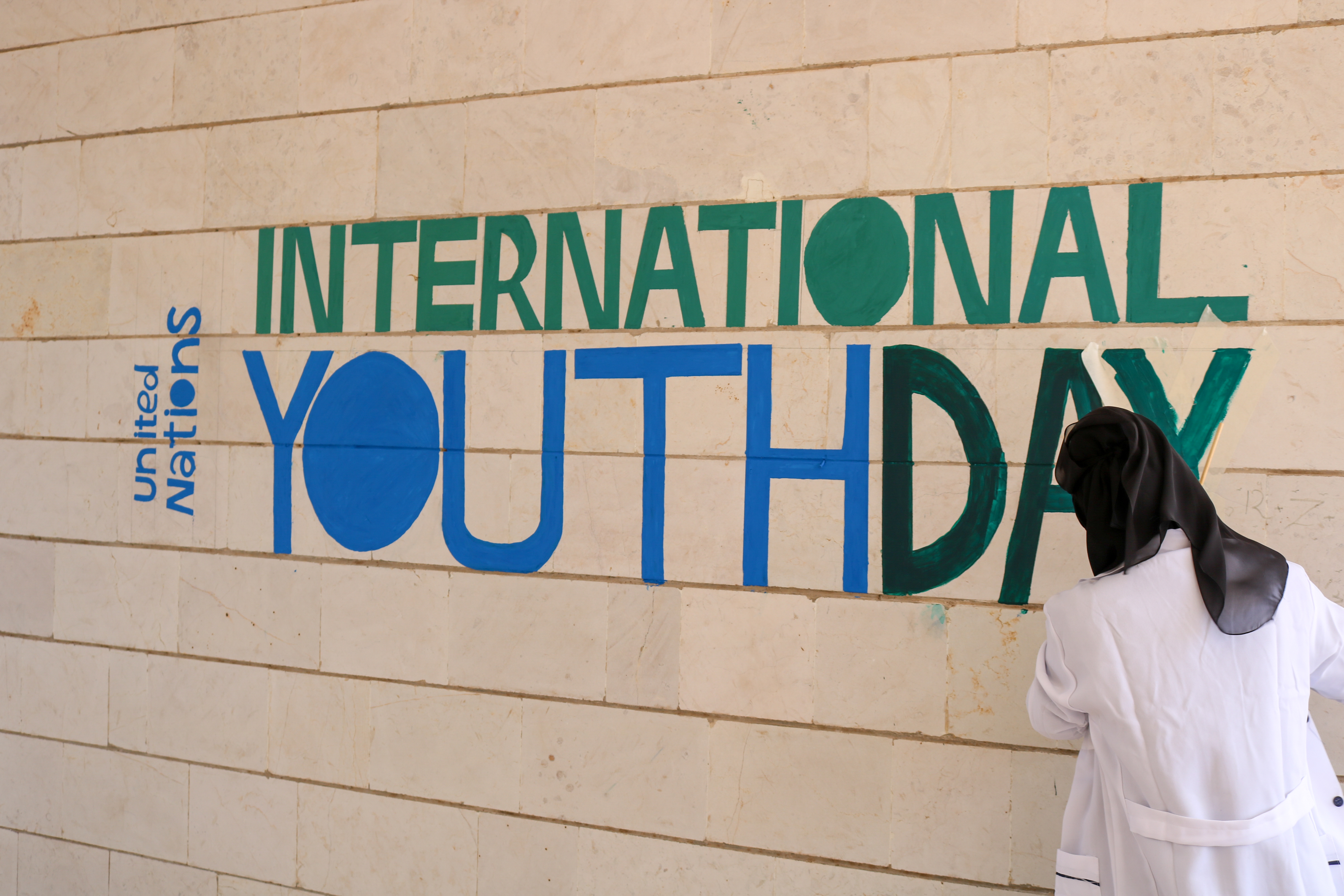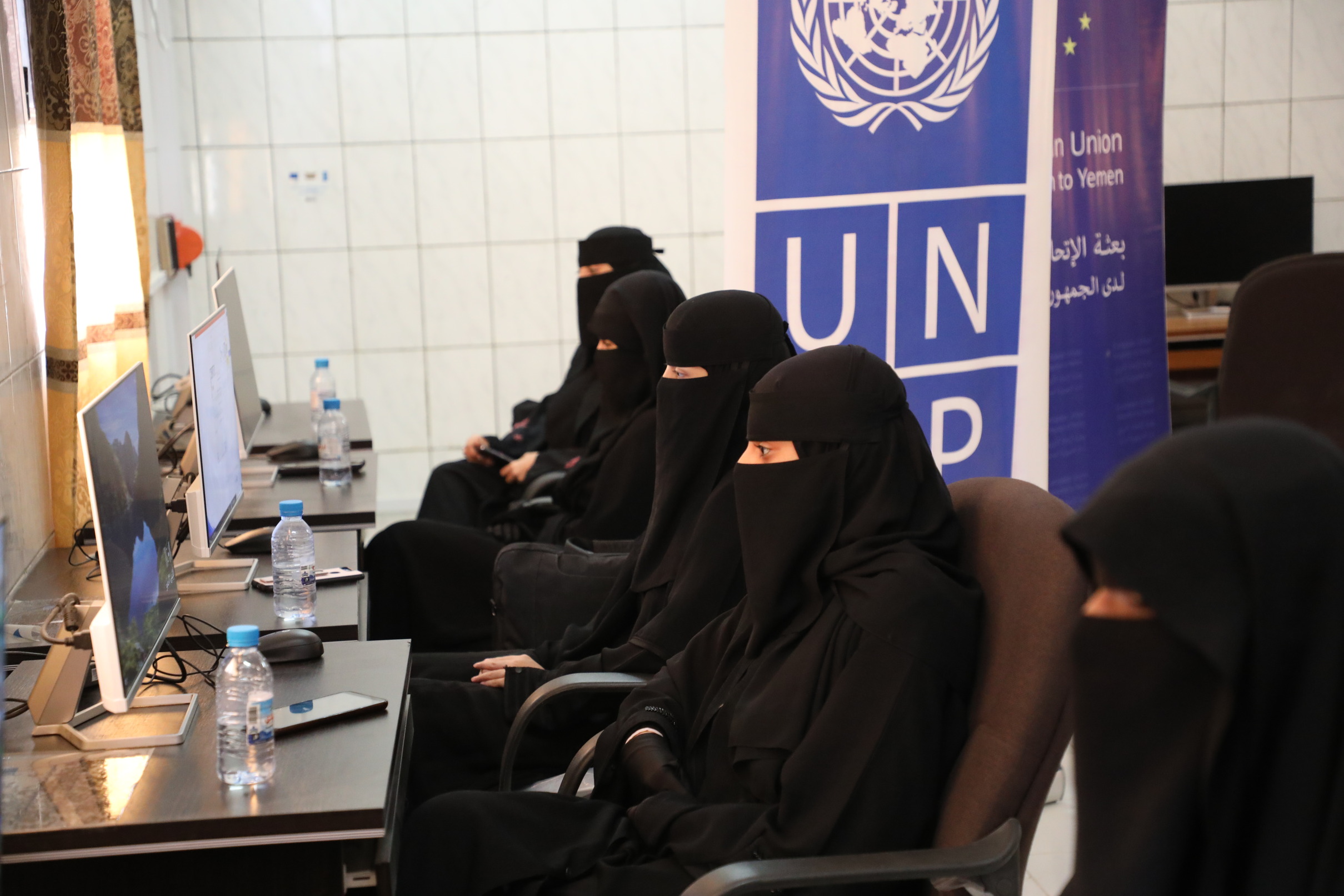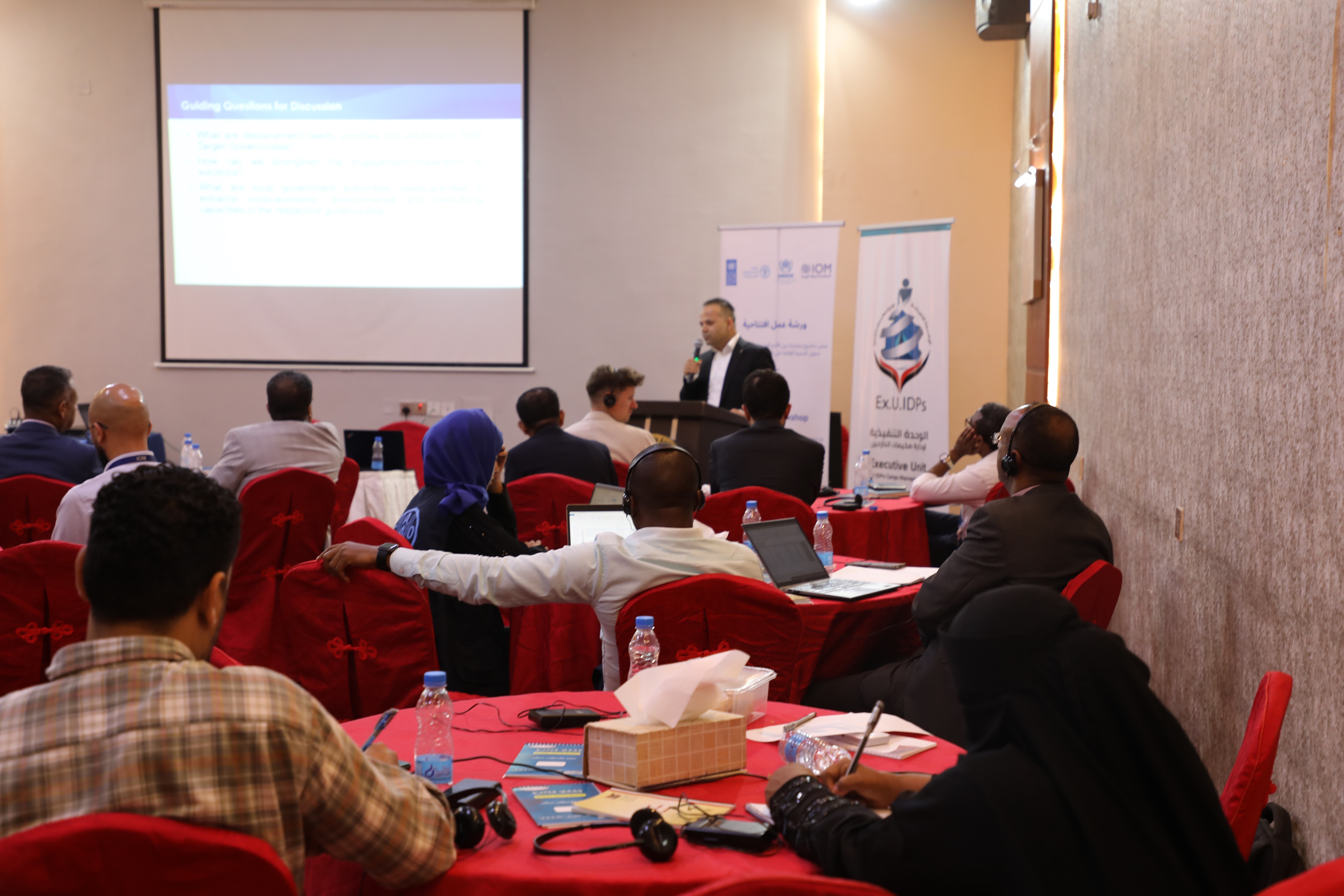
In 1999, United Nations General Assembly declared 12 August as International Youth Day to bring young people’s issues to attention and highlight their role as partners, vital in society.
According to the United Nations Population Fund, youth in Yemen represent more than one quarter of society, with around 30% of the population under the age of 30. The consequences of the ongoing crisis have curtailed young Yemenis’ access to basic services including education, and employment opportunities and have severely set back the functionality of governance systems and economic prospects across Yemen.
Damage to critical infrastructure including roads, ports, and airports has hampered trade and restricted access to basic services and essential goods, causing inflation and food insecurity. Further compounding these challenges is internal displacement that has forced many young people to leave their homes and schools, increasing reliance on humanitarian aid and the shrinking civic space.
Despite facing complex challenges, Yemeni youth have demonstrated their commitment to pursuing a better future, and their active engagement stands as a testament to their determination to advance sustainable peace.

Young women at Tarim Health Institute, established and equipped by local authorities with support from the Strengthening Institutional and Economic Resilience in Yemen Project.
Young Yemenis are at the forefront of addressing the causes and redressing the consequences of conflict, the latter all too often disproportionately affecting them. Therefore, equipping them with the skills to navigate adversities, including them in decision-making and peace processes, and building their trust in state institutions is key to carving out sustainable peace.
Effective state institutions that are transparent, inclusive, and resilient foster a sense of reliability. When young people trust these institutions, they are more likely to engage constructively. Recognizing this, UNDP Yemen, through its Governance and Peace Building Portfolio, supports governance systems at both national and local levels to bridge capacity gaps and enhance access to basic services.
Trust building between young people and state institutions
Through the Strengthening Institutional and Economic Resilience in Yemen (SIERY) Project, funded by the European Union, local authorities across 45 Yemeni districts developed the capacities of their personnel to chart inclusive resilience and recovery plans in consultation with community structures, including youth groups. Accordingly, the SIERY Project supports the implementation of the public priorities outlined in their plans, enhancing access to basic services for millions including young people.
Central to the SIERY Project’s support to local authorities is its emphasis on youth fellowship and internship programmes within local authorities’ offices. For instance, in Marib, the SIERY Project has facilitated the participation of young women in fellowship programmes, providing them with insight to how state institutions work and improving their access to the job market.

Sada, a former participant at the SIERY Project supported fellowship programme and the current Chairwoman of the National Women Committee in Marib.
The SIERY Project also supports local authorities to restore primary, secondary, and tertiary educational institutions. The longer young people disengage from education, the more difficult it is to make up for learning loss, and all demographics will feel the impact.
Displaced children and youth remain particularly vulnerable to education disruptions, with around 1.3 million in Yemen coping with overcrowded classrooms and overburdened teachers. In times of crisis and displacement, education plays a pivotal role in providing a sense of stability and normalcy for them.

Young women enrolled in vocational education and training at Al-Qaten Educational Complex, rehabilitated and equipped by local authorities with support from the SIERY Project.
UNDP Yemen also works to support state informal and formal institutions in enhancing judicial ecosystems to ensure fair and equal access to justice through its Promoting Inclusive Access to Justice in Yemen Project, generously funded by the Government of the Netherlands. This involves enhancing access to legal support, increasing shelter capacity for vulnerable detainees, including young people, and supporting vocational training for them. Accessible justice ecosystems help resolve disputes peacefully and uphold the rule of law, giving young people a sense of safety, security and justice.
A citizen posing with a police officer during the Chai Mulaban (or tea with milk) initiative in Aden. The aim of the initiate was to build trust and strengthen the relationship between citizens and police officers.
Development solutions to displacement
As the conflict approaches its decade mark and solutions to internal displacement require imminent focus, UNDP and other sister UN organizations are supporting the Government of Yemen to build local capacity to address internal displacement through the Area-Based Development Solutions to Displacement Project. Young women and men are often among the most adversely affected by displacement with disruptions not only in access to basic services but also to resources and social networks. Including them in finding durable solutions is crucial to ensuring their stability, security, and future opportunities for education and employment.

Government officials at the Area-Based Development Solutions to Displacement Project kick-off workshop in Aden.
Fostering local economic development
The SIERY Project supports state institutions in creating policies that promote economic development, improve food security and job creation. Through collaborative efforts with local authorities, Chambers of Commerce and Industry, and the private sector, the SIERY Project has identified promising growth value chains and works closely with stakeholders to revive and develop them through capacity building, especially for youth and women, and improving critical market infrastructure. These efforts are aimed at strengthening local economic development, generating employment, and enhancing access to local and international markets, which in return will contribute to boosting Yemen’s economy.

A young participant at one of the coffee cupping trainings supported by the SIERY Project in Sana’a.
Engaging young people in peace processes
Recognizing young Yemenis’ roles as leaders in tackling the complex crises facing them is crucial when fostering peaceful societies. Through the UN Peace Support Facility, funded by the European Union, Germany and Norway, a Small Grant Mechanism has been implemented, and six Civil Society Organizations (CSOs) are upskilling young Yemenis’ capacities in conflict resolution and mediation to ensure their full and meaningful participation in local and national peace processes. Central to the CSOs’ work is building trust among youth and key security institutions and raising awareness on reintegrating community returnees.

Young Yemenis at the conflict resolution capacity-building workshops hosted by one of the six participating CSOs.
***
The effectiveness of young people's engagement in peacebuilding influences their perception of the legitimacy of peace processes. While including youth as signatories in negotiations is important, their influence often extends beyond the negotiation table, with engagement in various forms proving impactful. UNDP Yemen remains committed to enhancing young people's community engagement and providing them with opportunities to actively participate in and influence society.

 Locations
Locations




